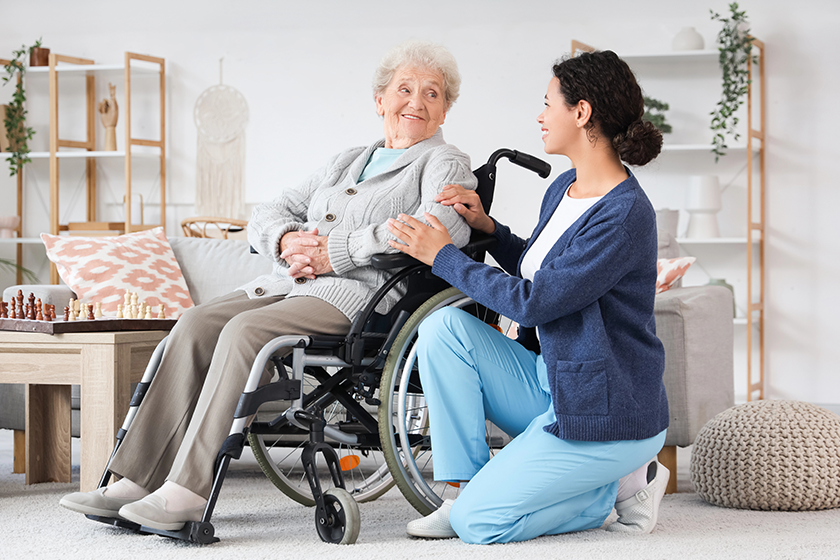As we age, maintaining independence becomes a priority, and the right tools can make daily tasks safer and easier. Assistive equipment for seniors plays an important role in promoting independence and well-being. These tools provide much-needed support, making everyday activities more manageable and reducing the risks of accidents or injury. Whether you’re living at home or in a retirement community, having the right assistive equipment can make a big difference in your quality of life.
Mobility Aids for Safe Movement
Mobility can become a concern as we age, and having the right equipment can help you stay active and independent. Canes, walkers, and wheelchairs are common tools that offer stability and support. Walkers provide a stable frame for those who might feel unsteady on their feet whereas a cane can assist with balance during short walks. Wheelchairs, on the other hand, offer more extensive support for those with limited mobility. With mobility aids, you can move around safely, whether indoors or outdoors, without the fear of losing balance or falling.
Bathroom Safety Equipment for Confidence and Security
Grab bars help you maintain balance when getting in and out of the shower or using the toilet. Shower chairs provide a safe and comfortable way to bathe while seated, especially if standing for long periods is difficult. Raised toilet seats make it easier to sit and stand without straining your knees or back. These simple additions to your bathroom can make daily routines much safer and easier to manage.
Hearing Aids for Clear Communication
Hearing loss is a common issue for many people over 60, and hearing aids can help improve communication and enhance daily interactions. Hearing aids amplify sounds, allowing you to engage in conversations with family members and friends more easily. They also help reduce feelings of isolation by making it easier to participate in social activities. With a range of hearing aids available, from discreet in-ear devices to those with advanced technology, there is an option to suit your specific needs and lifestyle.
Medication Management Devices for Health and Safety
Managing multiple medications can be challenging, but medication management devices can help you stay organized and ensure that you take the right doses at the right times. Pill organizers with labeled compartments for different days and times help you keep track of your medications. Automatic pill dispensers take it a step further by dispensing the correct dosage at the scheduled time. These devices also provide reminders to take your medication, ensuring that you don’t miss a dose or take the wrong one. By using medication management tools, you can maintain your health and reduce the risk of medication errors.
Remote Caregiving Technology for Peace of Mind
Remote caregiving systems allow family members and caregivers to monitor your well-being from a distance. These systems often come equipped with features such as emergency response buttons, video calls, and health monitoring tools. JubileeTV, for instance, transforms a regular television into a caregiving tool, enabling video calls and medication reminders directly through the TV. These systems help ensure that you are safe and provide peace of mind to your loved ones, knowing they can check in on you even if they live far away. Remote caregiving technology gives you independence while allowing your family members to stay connected and support your safety.
Home Automation Systems for Daily Convenience
Home automation systems can make life easier and safer by automating everyday tasks. Voice-activated assistants, smart thermostats, and lighting systems allow you to control your home environment with ease. You can adjust the temperature, turn lights on or off, and even lock doors without needing to move from your seat. These systems can be especially helpful for those with mobility issues, as they reduce the need to walk around the house frequently. With a home automation system, you can maintain control of your home environment, increase safety, and enjoy greater comfort and convenience in your daily life.
Cognitive Assistive Tools for Mental Clarity
Cognitive changes can also occur as we age, but cognitive assistive tools can help keep your mind sharp and organized. Memory aids, such as electronic organizers or voice-activated reminders, help you remember appointments, tasks, and medications. These tools are designed to support mental clarity and keep your daily schedule on track. GPS trackers are another useful device, especially for those who may have trouble navigating unfamiliar areas. These tools not only help with memory and organization but also promote safety by providing guidance when needed. Cognitive assistive tools give you the confidence to stay engaged in your daily life and participate fully in activities without worrying about forgetfulness.







